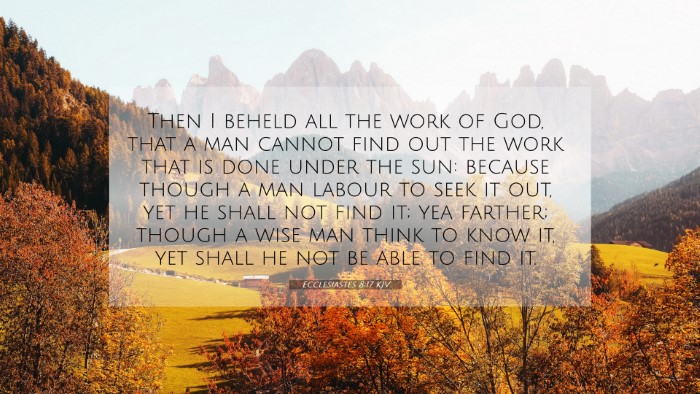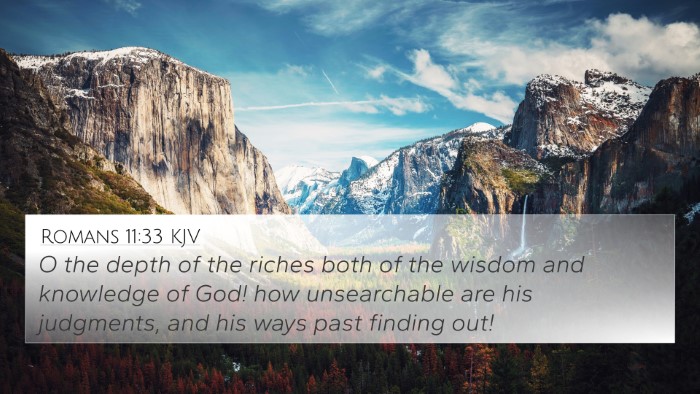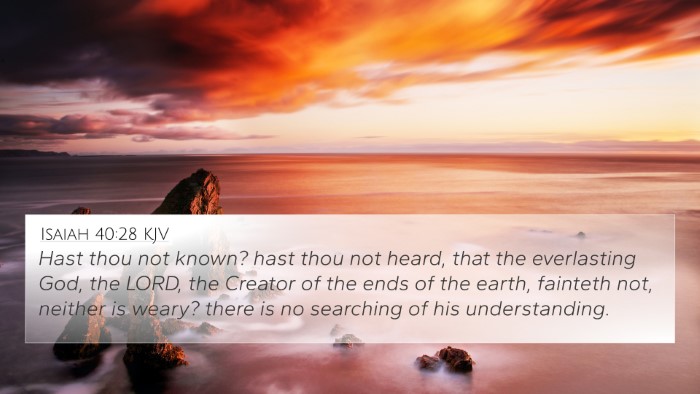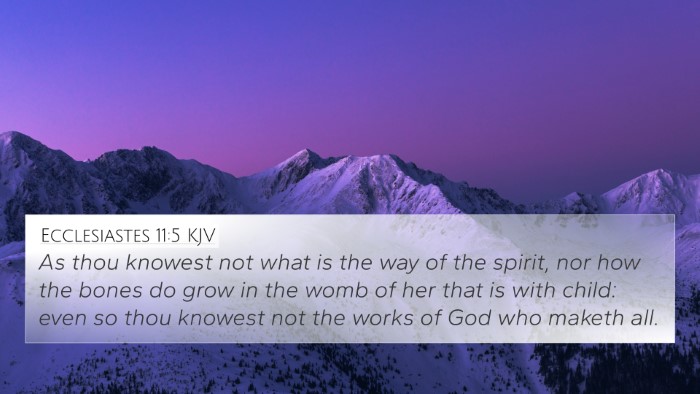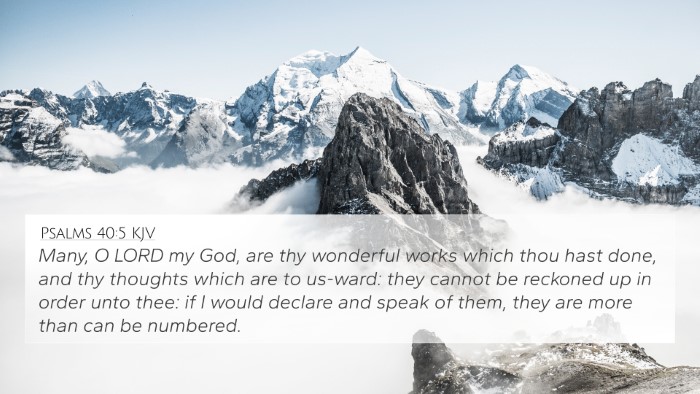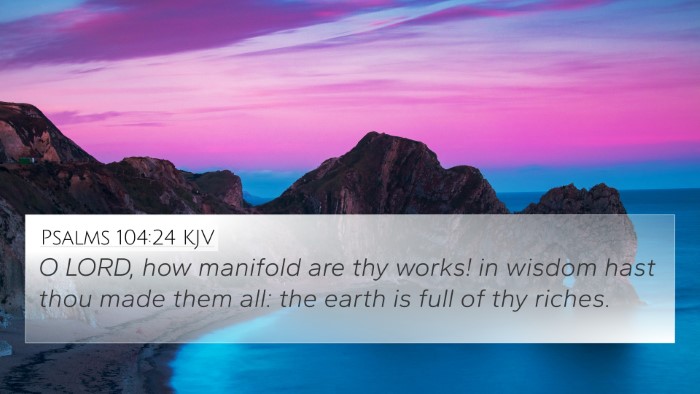Understanding Ecclesiastes 8:17
Ecclesiastes 8:17 states: "Then I beheld all the work of God, that a man cannot find out the work that is done under the sun: because though a man labor to seek it out, yet he shall not find it; yea further; though a wise man think to know it, yet shall he not be able to find it." This verse encapsulates the limitations of human understanding regarding God's divine plans and works.
Summary of Key Themes
- The Limitations of Human Knowledge: This verse reflects on the futile pursuit of complete understanding of God's work among us. The inability to fully grasp divine intentions highlights the vastness of God's wisdom compared to human reasoning.
- The Role of Wisdom: While wisdom can guide us, it ultimately cannot unveil the entirety of God's workings. The wise may ponder deeply but will remain in awe of the mysteries of creation.
- Trusting in Divine Sovereignty: The emphasis on God's work suggests that faith and reliance on God's plan is more crucial than trying to fathom the divine will.
Interpretative Insights
Public domain commentaries shed light on several aspects of this verse:
- Matthew Henry: He emphasizes the vanity of human attempts to discover the purpose of divine actions. Henry notes that the search for understanding God's works may lead to frustration, reinforcing the need for humility and acceptance of divine mystery.
- Albert Barnes: Barnes stresses the distinction between human effort and God’s work. He suggests that while individuals may strive for wisdom, their attempts are ultimately bound within the limitations of mortality and human intellect. He points out that even the wisest are left in uncertainty regarding the full scope of God's plans.
- Adam Clarke: Clarke elaborates on the futility depicted in this verse, suggesting that God’s plans are beyond human comprehension. He discusses how this creates a space of wonder that invites faith, prompting believers to focus on living righteously rather than fully understanding every aspect of God's will.
Related Biblical Cross-References
Ecclesiastes 8:17 can be connected with several other biblical texts that explore similar themes of human understanding and divine sovereignty:
- Job 11:7-9: These verses question the ability of mortals to comprehend the depth of God’s wisdom, echoing the sentiment of human limitation.
- Proverbs 25:2: This verse reflects on the glory of God in concealing things, reinforcing that not everything is meant to be understood.
- Isaiah 55:8-9: God’s ways and thoughts are higher than ours, illustrating the majestic difference between divine and human reasoning.
- Romans 11:33: Paul expresses admiration for the depth of God’s riches and wisdom, emphasizing the inscrutability of His judgments.
- 1 Corinthians 2:9-10: This passage highlights that what God has prepared for those who love Him is beyond human sight but revealed by the Spirit.
- Psalm 139:6: Acknowledges the knowledge of God as too wonderful for human understanding, resonating with the themes in Ecclesiastes.
- Proverbs 16:4: Suggests that God has a purpose for everything, indicating the importance of trusting God in the face of life's uncertainties.
Thematic Analysis
In a broader context, Ecclesiastes 8:17 invites a comparative Bible verse analysis connecting various scriptures that address human wisdom versus divine knowledge.
There is a thematic connection across these verses that encourages believers to embrace the unknowns of life and cultivate a trusting relationship with God, who holds the answers and ultimate truth. Through tools for cross-referencing, individuals can explore these themes further.
Practical Application and Reflection
This verse challenges believers to reevaluate their expectations regarding understanding God’s will. It calls for:
- A posture of humility: Recognizing the limits of human intellect fosters a deeper appreciation of God’s greatness.
- A dedication to faith: Instead of striving for comprehensive knowledge, believers are encouraged to trust God's providence and timing.
- A focus on living righteously: Understanding that life may harbor unanswered questions, believers are prompted to seek righteousness and wisdom in their daily conduct.
Conclusion
In conclusion, Ecclesiastes 8:17 serves as a reminder of the divine mystery and the limitations of human understanding. By engaging in cross-referencing Biblical texts and employing thematic exploration, believers can find comfort in their faith journey, despite life's uncertainties.


